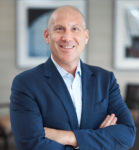

By CECI CONNOLLY and MATT DOBIAS
When it comes to money back guarantees in health care, it’s often less about the money and more about the guarantee.
That’s the biggest takeaway shared by two organizations—Geisinger Health System and Group Health Cooperative of South Central Wisconsin (GHCSCW)—that separately rolled out closely-watched campaigns to refund patients their out-of-pocket costs for health care experiences that fell short of expectations.
Both programs started as a way to inject a basic level of consumerism into a process long bereft of one. In fact, as consumer frustration over medical costs rise, a money back guarantee has the potential to win back a dissatisfied public.
But like many experiments in health care, the effort produced some unexpected results as well. Instead of a rush on refunds, executives from both systems said their money-back pledge served even better as a continuous-improvement tool, with patients providing almost instantaneous feedback to staff who felt newly empowered to address problems.
Continue reading…









